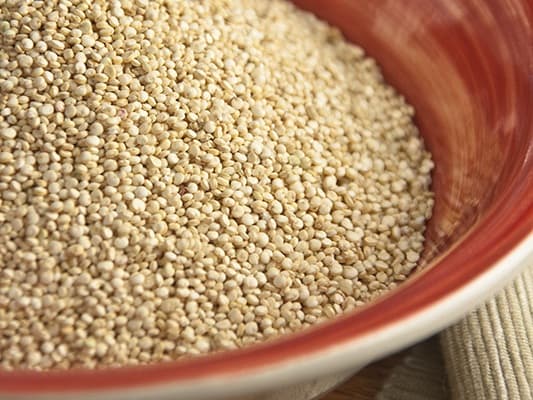Up to 20% of Americans have irritable bowel syndrome (IBS). In the past, people with IBS had to learn to live with their IBS symptoms, but not anymore! A new dietary approach, called a FODMAP-elimination diet, makes it possible for up to 80% of people with IBS to get relief.

People with IBS have digestive systems that don’t function properly, though nothing seems to be medically wrong. IBS symptoms can include excess gas, bloating, abdominal pain, diarrhea, and/or constipation.
If your doctor thinks you have IBS, and if you are interested in managing it naturally instead of with medication, you might want to start with the basics: regular meals, drinking plenty of water, lots of high-fiber foods, and regular physical activity. Unfortunately, many people with IBS find that eating more fruits, vegetables, whole grains, and other high-fiber foods doesn’t help or makes their symptoms worse.
That’s where FODMAPs come in. FODMAPs are particular types of sugar and fiber in foods that can cause problems for people with IBS. They are fermented rapidly, producing gas, by the normal bacteria that live in our guts. Fermentation sounds a bit scary, but it’s actually a normal part of digestion. However, if it happens too fast it can trigger bloating and other IBS symptoms. FODMAPs can also pull water into the gut, causing bouts of diarrhea for some.
Examples of FODMAPs in the diet include lactose (milk sugar), fructose (fruit sugar), sugar alcohols (found in certain fruits and vegetables), and the types of fiber found in onions, garlic, chicory root, beans, nuts, wheat, barley, and rye. Because many high FODMAP foods are also valuable sources of nutrients, the goal at the end of a FODMAP-elimination diet is for each person to eat the most varied diet he or she can tolerate.
A FODMAP-elimination diet is a multi-step learning process, ideally undertaken with the guidance of a registered dietitian. This evidence-based dietary approach was developed by researchers at Monash University, in Australia, and is now in use world-wide. First, high-FODMAP foods are eliminated from your diet for a few weeks. They are then reintroduced in a carefully planned way while you monitor your symptoms. This helps you identify which FODMAPs you tolerate and which you do not.
While food is unlikely to cause or cure IBS, the right food choices can help most people manage their symptoms. If you have IBS, I think you’ll agree that’s important. People with IBS don’t have to settle for learning to live with symptoms.